100 calories? 5 calories? How about no calories at all?
Looking for the best zero-calorie energy drinks? You’re in the right place.
Whether you’re a health enthusiast trying to lose weight or following a particular diet, having a fondness for sugary energy drinks is sometimes a frustrating temptation to overcome.
There is, however, a quick solution to your calorie counting problems.
Zero-calorie energy drinks combine the best of both worlds, giving you all the pep and energy to get through the day without those pesky calories getting in the way.
With that in mind, if you want to know the answer real quick, I think the best zero-calorie energy drinks are Reign, Hiball, and Zevia.
Read on to find out everything you need to know about zero-calorie energy drinks, from optimal caffeine and ingredients, to whether zero-calorie energy drinks are actually good or bad for you.
Let’s get started…
Are Zero-Calorie Energy Drinks Bad for You?
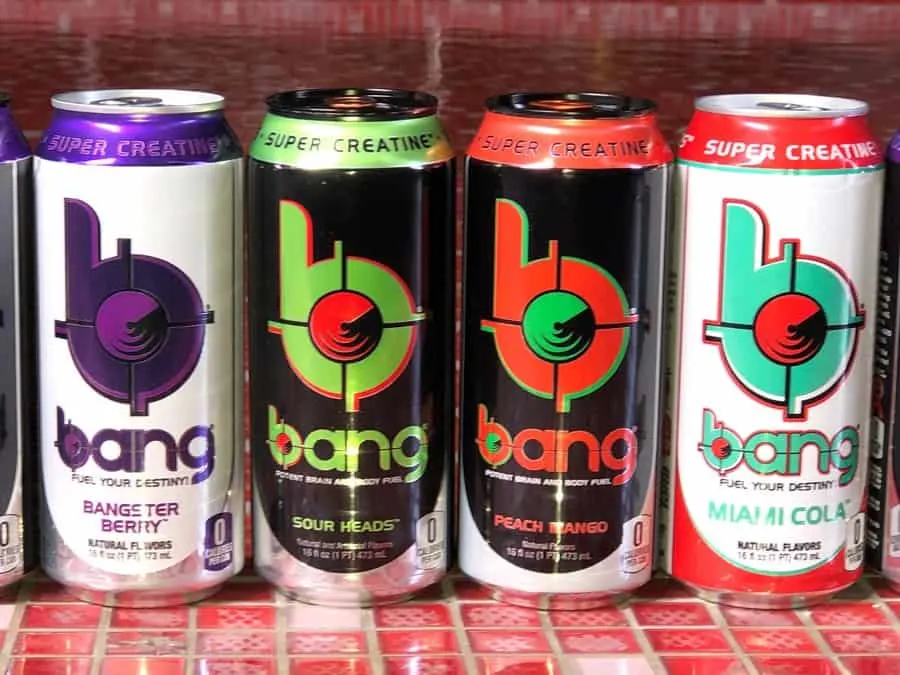
As long as you don’t have any pre-existing medical conditions and have them in moderation, zero-calorie energy drinks shouldn’t negatively affect your health at all.
Personally, as a long-time energy drink fan, zero-calorie (or at least sugar-free) energy drink options are the way to go moving forward.
Zero-calorie energy drinks can provide just as much energy without the calories and sugar due to having a decent amount of caffeine present.
Plus, the lack of sugar means that you don’t have to worry about the potential health risks of long-term excessive sugar consumption. And needless to say, you’ll also avoid the dreaded sugar crash after as well.
All in all, if you’re drinking energy drinks purely for the caffeine boost, zero-calorie energy drinks are the way to go as they’re healthier than regular energy drinks overall and should still work just as well.
Can Zero Calorie Energy Drinks Make You Gain Weight?
By the mere mention of zero-calories, you would’ve probably guessed the answer to this: drinking a zero-calorie energy drink by itself will not contribute to weight gain.
Gaining weight, whether consciously or unwillingly, is generally attributed to a few factors ranging from your genetics, lifestyle choices, and of course, daily nutritional intake.
Considering that regular energy drinks can have up to 200 calories or more, it’s pretty understandable why normal sugared energy drinks would lead to weight gain.
However, zero-calorie energy drinks have 0 calories, so it seems impossible for the consumption of these energy drinks itself to cause weight gain.
Can Zero-Calorie Energy Drinks Help You Lose Weight?
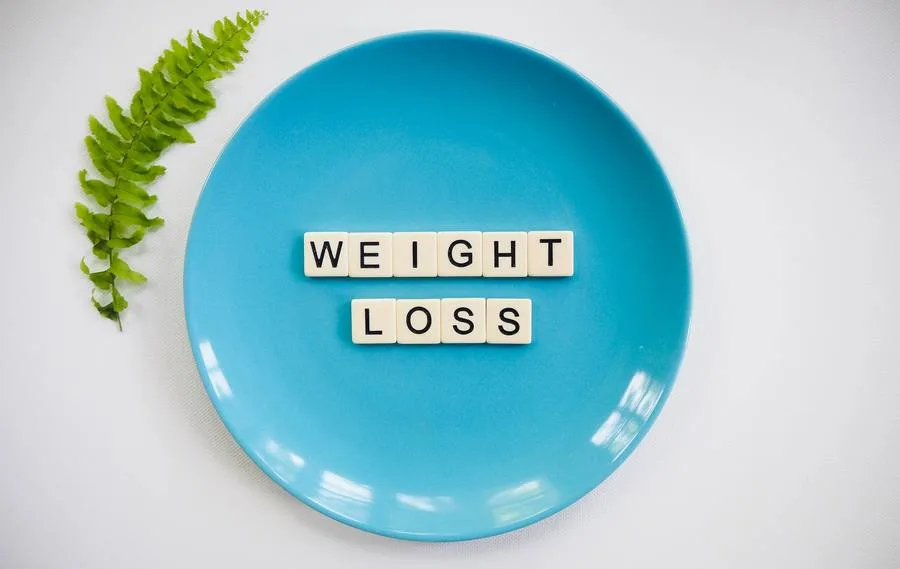
It’s not so much the energy drink itself, but more what you do with that extra pep and if you use it to the fullest.
Healthy weight loss factors into quite a few things, from nutrition to schedule to daily exercise. While it would be great if you could drink a zero-calorie energy drink and lose weight, the reality is a tad more disappointing.
While zero-calorie energy drinks don’t really contribute much in the nutritional sense, they do contain caffeine, which is proven to help improve exercise performance.
Therefore, grabbing a zero-calorie energy drink right before an exercise session may help you to burn away extra calories. But of course, caffeine only helps you to burn fat if you actually do exercise.
All in all, zero-calorie energy drinks don’t negatively impact your weight loss goals and may be beneficial in helping you reach your intended weight when paired with exercise.
If you’re looking for energy drinks to complement your workout routine, I’ve written an article detailing the best energy drinks to burn fat where I cover everything you need to know in a lot of detail.
Are Zero-Calorie Energy Drinks Keto-Friendly?
As zero-calorie energy drinks often don’t contain sugar or complex carbohydrates, they can definitely work together with a keto diet.
There are plenty of potential health benefits you can get by following a low carb, high protein/fat diet, such as weight loss and reduced blood sugar levels, which is what makes the Keto diet so popular.
While zero-calorie energy drinks won’t actively harm your attempts at a keto diet, you might have to look a bit harder if you’re looking for a drink that complements it.
The most popular examples of zero-calorie energy drinks that can help with a keto diet are Reign and Bang with their high BCAA content, but their rather high amount of caffeine isn’t for everyone.
If you want to learn more about energy drinks and the keto diet, I’ve written a complete guide on the subject with all sorts of information you might be interested in.
Is Coffee Better Than Zero-Calorie Energy Drinks?
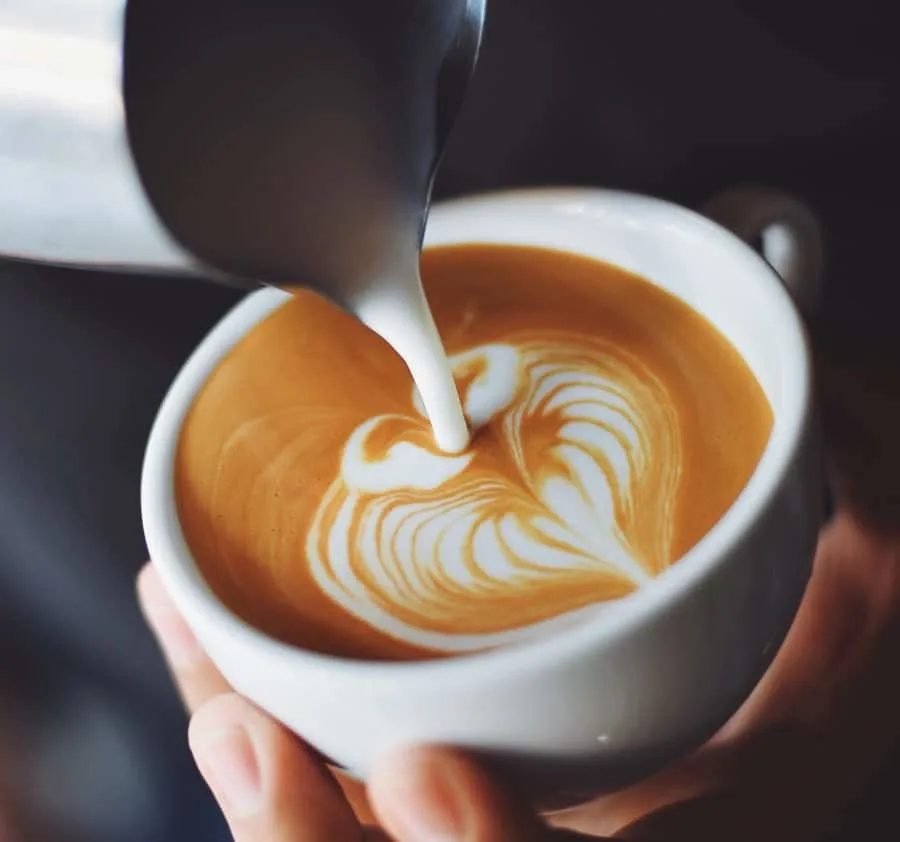
While the caffeine content in coffee can reach anywhere from 95mg to over 500mg, the caffeine content in energy drinks contains some standardized amount of caffeine, ranging from 50mg to 300mg per serving.
Unless you happen to be a hardcore coffee enthusiast, you don’t really know how much caffeine is in a cup of coffee, unlike energy drinks, where they display the caffeine content right on the can.
In its most basic form, coffee would be considered a healthier beverage. However, adding cream and sugar to a cup of coffee does raise its calorie count quite a bit, often equalling or exceeding those of a sugary energy drink.
Although there are a bunch of differences between coffee and zero-calorie energy drinks, such as the general nutritional value, antioxidant, and vitamin content, it ultimately boils down to personal taste and preferences.
For more information on the whole coffee vs. energy drink debate, I would recommend that you look at the article I’ve written here for a more in-depth look.
What To Look For in the Best Zero-Calorie Energy Drinks
From calories to caffeine content, you can find what you need on the nutritional label at the back of a can.
Here are some pointers to some of the more important things to look out for in an energy drink:
Calories
For zero-calorie energy drinks, you should probably be looking for energy drinks with, you guessed it, zero calories.
This is probably the most obvious determinant of a zero-calorie energy drink, so it shouldn’t be an issue for you to find a zero-calorie energy drink.
As a reminder, the daily recommended caloric intake for healthy adults is between 2000 to 2400 calories for women and 2400 to 3000 calories for men.
Considering that some energy drinks can have up to 260 calories, going for a zero-calorie energy drink option is definitely the healthier choice.
However, you might unwittingly confuse energy drinks that contain zero sugar with zero-calorie energy drinks, so be aware that just because an energy drink is sugar-free, it doesn’t mean it’s also calorie-free.
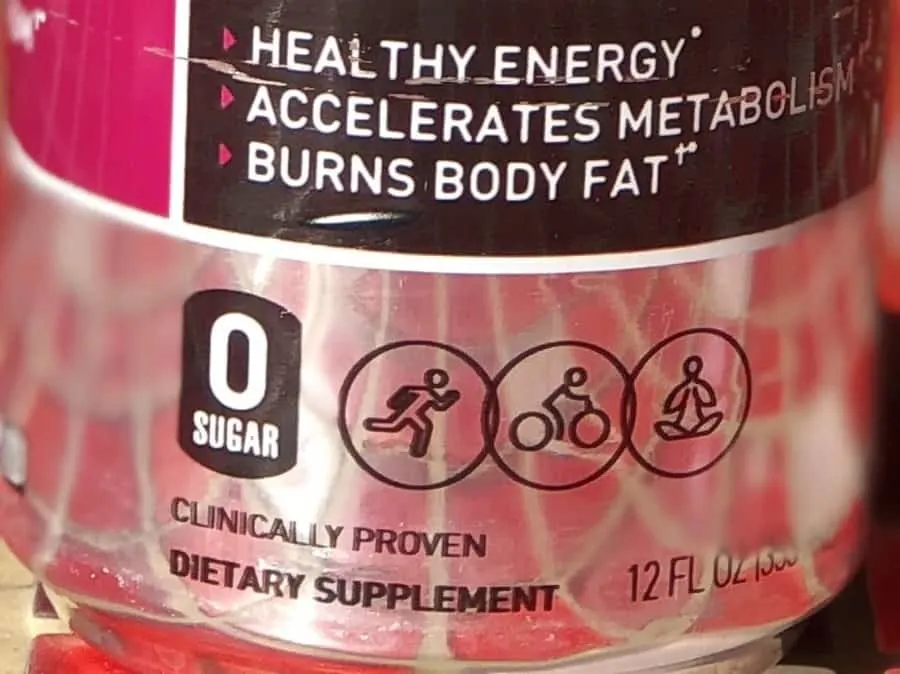
As a quick rule of thumb, I would suggest you remember that all zero-calorie energy drinks are sugar-free, but not all sugar-free energy drinks have zero-calories.
In any case, as long as you’re aware of this slight marketing trick, you should be on the right track to getting that zero-calorie energy drink of your choice.
Caffeine Content
Optimally, you should pick an energy drink that best suits your caffeinated beverage needs, which can range from anywhere between 50 to 300mg of caffeine.
Everyone reacts to caffeine differently. You have hardened black coffee-drinking veterans to people with a low caffeine tolerance.
Caffeine metabolism and the frequency that you drink caffeinated beverages greatly affect the optimum caffeine content a person might need to get its benefits, so be aware before you dive into the 300mg deep-end.
Remember, just because an energy drink has high caffeine content, it doesn’t mean it’s the optimal caffeine content for you as an individual.
That said, note that the FDA recommends a daily caffeine limit of no more than 400mg. So if you have any more than that, you might experience side effects such as:
- Restlessness
- Insomnia
- Headaches
- Rapid or abnormal heart rhythm
- Dehydration
- Anxiety
Of course, if you start to experience these effects even before you reach the limit, you might want to put down the can anyway. Everyone’s caffeine metabolism is different, so be aware of how much you can handle.
Personally, I prefer a caffeine content of between 50 to 100mg per serving as I find that it gives me the boost I need without the negative side effects or feeling over-caffeinated, which is perfect.
Sugar Content
Sugar is often the main cause of the high-calorie content in most energy drinks. As such, zero-calorie energy drinks are always sugar-free and thus, contain no sugar.
Sugar contains a high number of calories, so you can see why zero-calorie energy drinks don’t have any sugar in them: it’s practically impossible to have zero-cal anything with the presence of sugar.
Besides that, by not having sugar, zero-calorie energy drinks won’t give you a sugar crash after consumption and also allow you to avoid the sickly sweet taste of sugary energy drinks that you might not be fond of.
Plus, you won’t have to worry about counting your energy drinks into your total daily added sugar limit, as zero-calorie energy drinks contain no sugar.
Considering most energy drinks can have up to 20-50g of sugar, zero-calorie energy drinks can definitely help curb your daily added sugar consumption.
Artificial Sweeteners
Unless specifically stated to be naturally sweetened, most sugar-free, zero-calorie energy drinks often have some form of artificial sweetener, usually sucralose, acesulfame potassium, or both.
Zero-calorie artificial sweeteners such as sucralose and acesulfame potassium are generally used to add some sweetness to an otherwise unsweetened energy drink, which may taste bland.
If you’re going for the healthy option, naturally sweetened energy drinks are generally the safer choice, as there’s still quite a lot we don’t know about artificial sweeteners.
Even then, artificial sweeteners have been approved by health authorities the world over, so it really shouldn’t be any problem if you’re only having drinks with them occasionally.
Other Ingredients
From B-Vitamins to Taurine to BCAAs, there are a whole lot of other ingredients present in most zero-calorie energy drinks.
As each brand contains something uniquely different, it’s really up to you to choose what other nutrients you want in your energy drink.
Sports enthusiasts may opt for electrolytes, while others might prefer the antioxidizing properties of guarana extract.
For more info on how to pick a healthy energy drink, take a look a the video below:
The Best Zero Calorie Energy Drinks
These are, in my personal opinion, some of the best zero-calorie energy drinks that you can find anywhere in the market:
| Energy Drink | Volume | Calories | Sugar | Caffeine |
| Reign Energy Drink | 16 fl.oz | 0 | 0g | 300mg |
| Hiball Sparking Energy Water | 12 fl.oz | 0 | 0g | 160mg |
| Zevia Zero-Calorie Energy | 12 fl.oz | 0 | 0g | 120mg |
| REIZE | 4g sachet | 11 | 0g | 50mg |
Reign
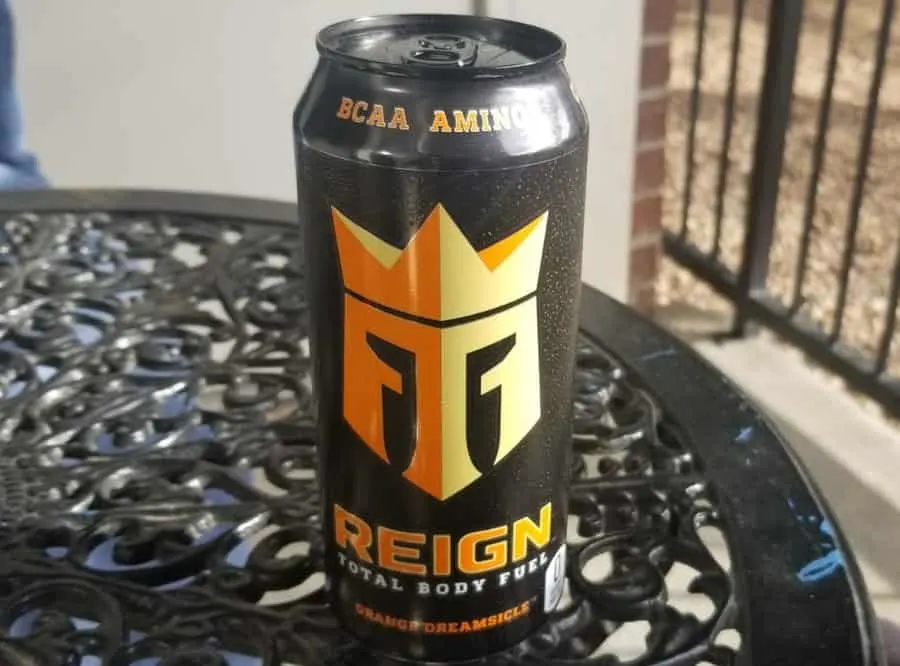
Each can of Reign energy drink may contain more caffeine than is probably necessary, but if you’re a workout enthusiast, this is definitely the zero-calorie energy drink for you.
Each 16 fl. oz can of Reign contains no calories, no sugar, and has a solid 300mg of caffeine. It also contains BCAAs, Vitamins, and electrolytes, which is perfect if you happen to be fond of exercise.
For further information on Reign, check out the review article I’ve written on Reign here.
Hiball Sparkling Energy Water
If you’re looking for caffeinated sparkling water that doesn’t taste like it’s been filled to the brim with artificial ingredients, Hiball has you covered.
Hiball Sparkling Energy Water has no calories, no sugar, and 160mg of caffeine. It also has some favored energy drink ingredients such as B-vitamins, guarana, and ginseng extract, all without artificial flavoring.
It also has a great, light taste. So if you’re looking for something that goes down easy without tasting like a sugary mess, then Hiball might be the zero-calorie energy drink for you.
Zevia Zero-Calorie Energy Drink
Packed with natural caffeine and free of artificial ingredients, Zevia Calorie Energy Drink is a definite contender for your zero-calorie energy drink needs.
Each 12fl.oz can of a Zevia Energy Drink has 0 calories, 0 sugar, and 120mg of caffeine. It’s naturally sweetened with stevia leaf, so it’s completely absent of any artificial sweeteners.
Zevia comes in a variety of bold flavors, and the lower caffeine count will definitely benefit you if you’re more caffeine sensitive.
REIZE (10 out of 10)
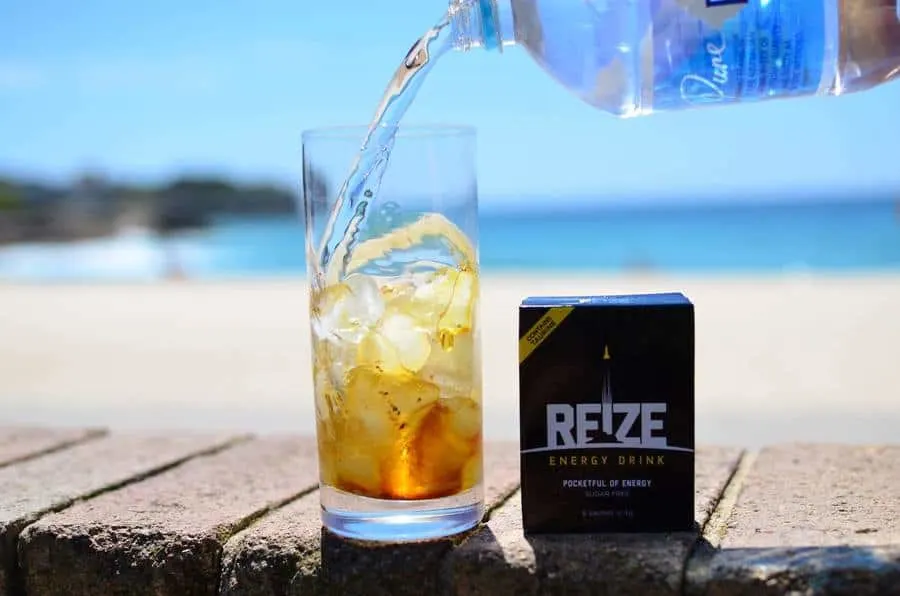
Zero-calorie energy drinks are some of the best you can get, but here’s a better energy drink if you don’t mind a very small number of calories.
REIZE is a delicious powdered energy drink that comes in convenient 4g sachets. With a sensible 50mg of caffeine, REIZE is completely sugar-free and definitely won’t give you a sugar crash.
With just 11 calories, REIZE will barely register.
Besides, research suggests you can have up to 50 calories without breaking a fast.
REIZE also contains a smart blend of taurine, ginseng, and B-group vitamins, which all help to give you the perfect energy boost without overdoing it.
Best of all, you can get REIZE shipped right to your door for only about $1 per drink, which is amazing value for money.
Try REIZE today, and I’m sure you’ll agree that it’s the smarter choice.

